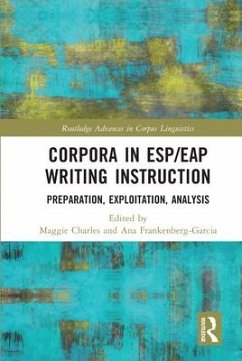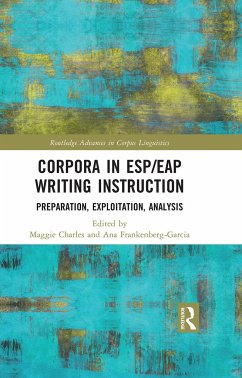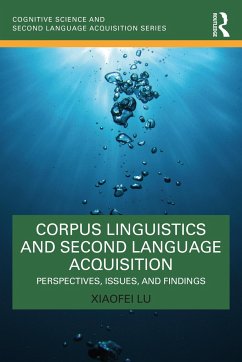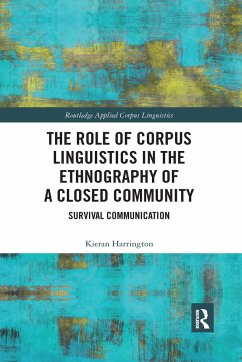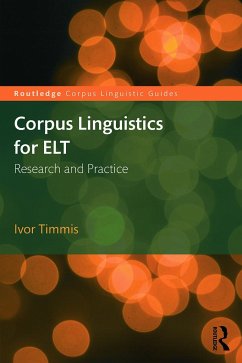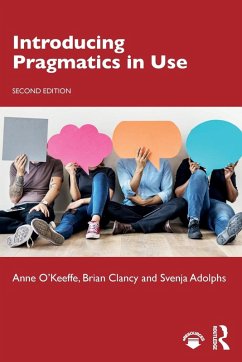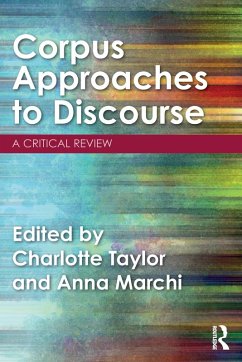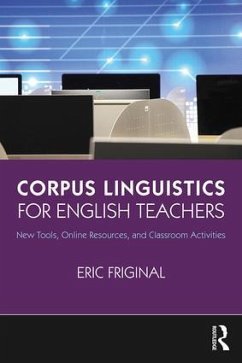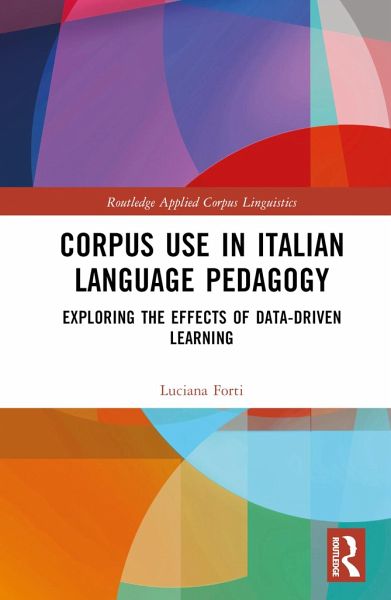
Corpus Use in Italian Language Pedagogy
Exploring the Effects of Data-Driven Learning
Versandkostenfrei!
Versandfertig in 6-10 Tagen
138,99 €
inkl. MwSt.
Weitere Ausgaben:

PAYBACK Punkte
69 °P sammeln!
Corpus Use in Italian Language Pedagogy: Exploring the Effects of Data-Driven Learning provides a comprehensive overview of corpus use in Italian L2 Pedagogy. The author addresses Italian language corpus resources, their potential uses in pedagogical settings, and the range of research methods available to evaluate their effectiveness. Overall, the book:provides a comprehensive account of Italian corpora and corpus-based research on Italian that can inform the design, implementation and evaluation of DDL practices in Italian learning and teaching contextstraces the history of DDL, by describin...
Corpus Use in Italian Language Pedagogy: Exploring the Effects of Data-Driven Learning provides a comprehensive overview of corpus use in Italian L2 Pedagogy. The author addresses Italian language corpus resources, their potential uses in pedagogical settings, and the range of research methods available to evaluate their effectiveness. Overall, the book:
provides a comprehensive account of Italian corpora and corpus-based research on Italian that can inform the design, implementation and evaluation of DDL practices in Italian learning and teaching contextstraces the history of DDL, by describing its origins and discussing its theoretical underpinnings, in relation to both linguistics and pedagogyexamines the state-of-the-art in DDL research, in light of the available empirical evidence on both etic and emic dimensions, while placing particular emphasis on the methodological gapsillustrates the main methodological challenges in researching DDL, from corpus resource selection to empirical evaluation of its pedagogical effectiveness, and describes how they can be overcomedemonstrates, by means of an in-depth case study, how the guidelines provided above can be applied when researching DDL effects in a specific second language learning and teaching contextdiscusses the overall challenges the field faces today, while outlining some desirable avenues for future research and pedagogical practice
This book will not only be of interest to those conducting research in corpus linguistics and teaching in the Italian domain, but also to those working with other languages.
provides a comprehensive account of Italian corpora and corpus-based research on Italian that can inform the design, implementation and evaluation of DDL practices in Italian learning and teaching contextstraces the history of DDL, by describing its origins and discussing its theoretical underpinnings, in relation to both linguistics and pedagogyexamines the state-of-the-art in DDL research, in light of the available empirical evidence on both etic and emic dimensions, while placing particular emphasis on the methodological gapsillustrates the main methodological challenges in researching DDL, from corpus resource selection to empirical evaluation of its pedagogical effectiveness, and describes how they can be overcomedemonstrates, by means of an in-depth case study, how the guidelines provided above can be applied when researching DDL effects in a specific second language learning and teaching contextdiscusses the overall challenges the field faces today, while outlining some desirable avenues for future research and pedagogical practice
This book will not only be of interest to those conducting research in corpus linguistics and teaching in the Italian domain, but also to those working with other languages.




